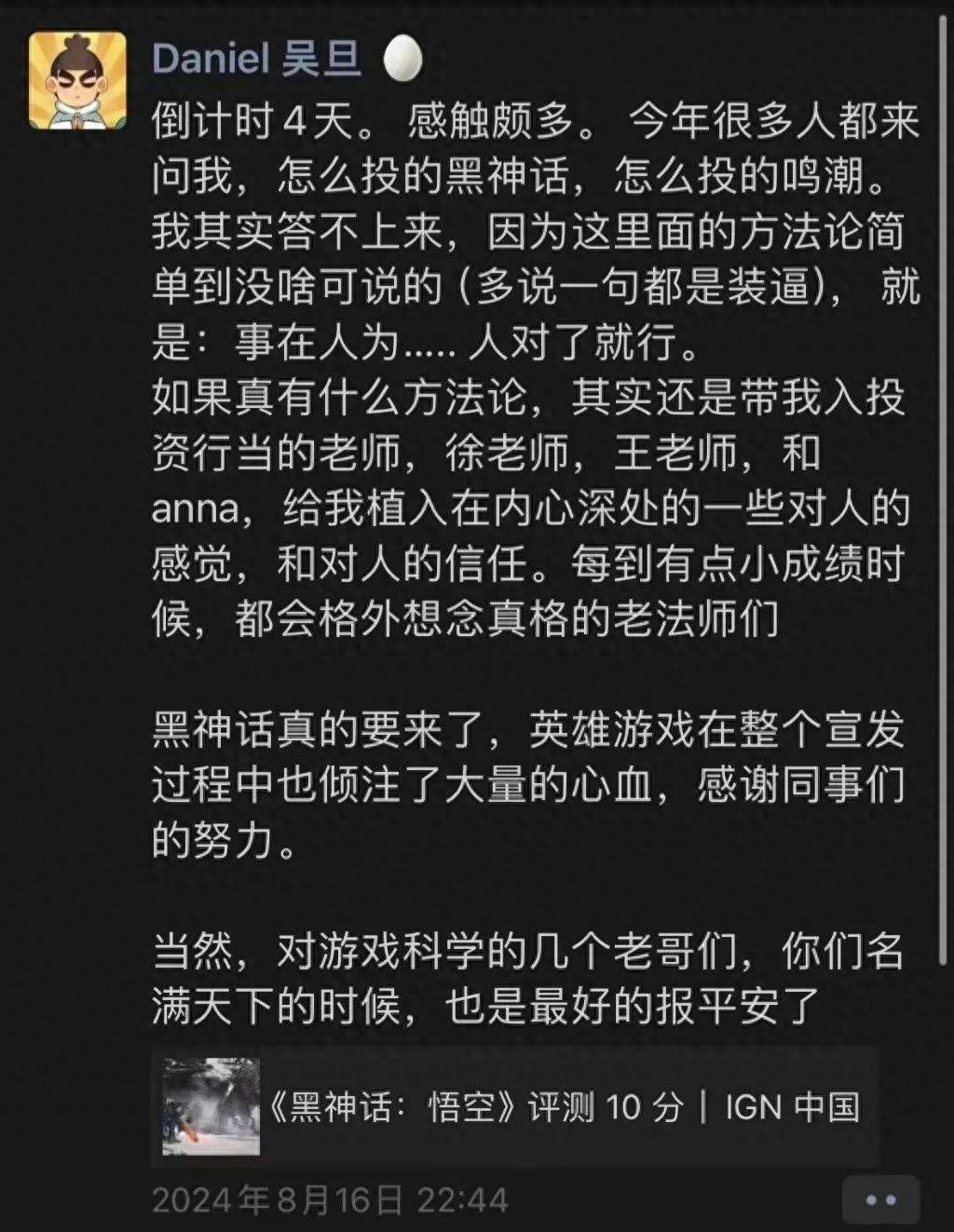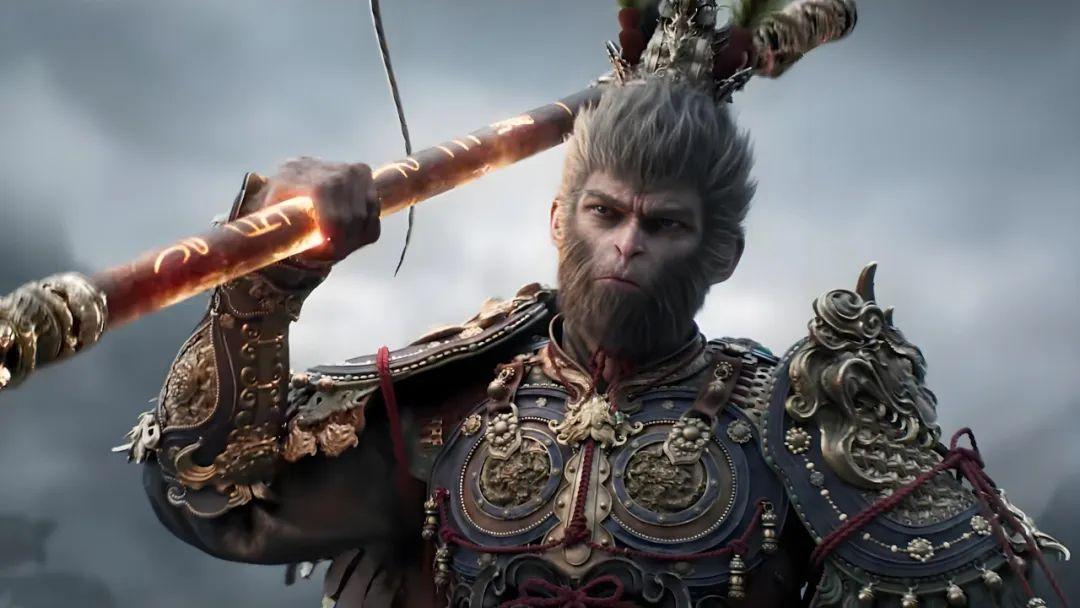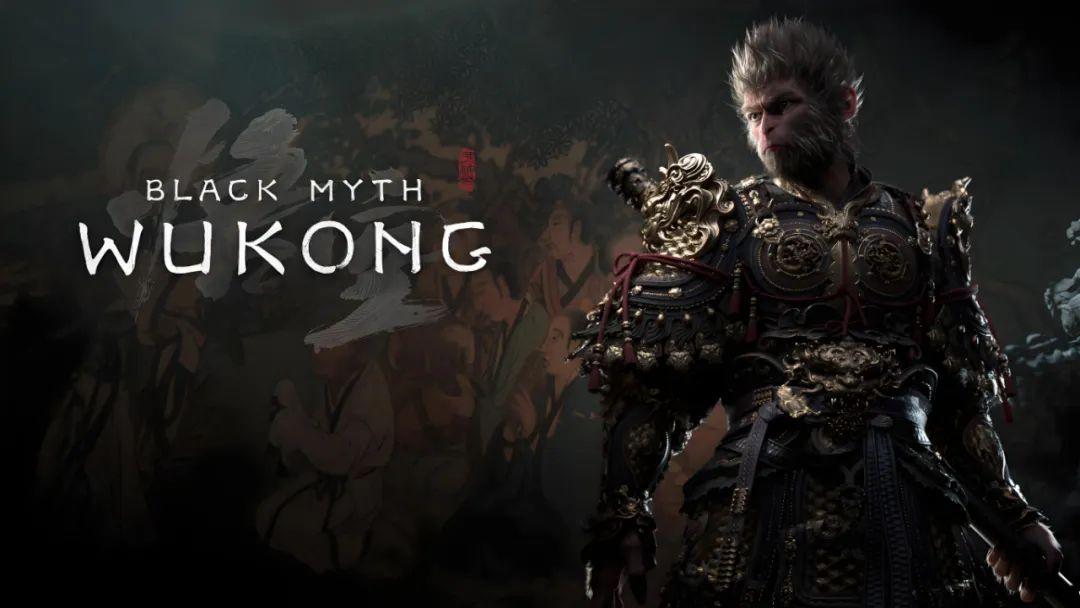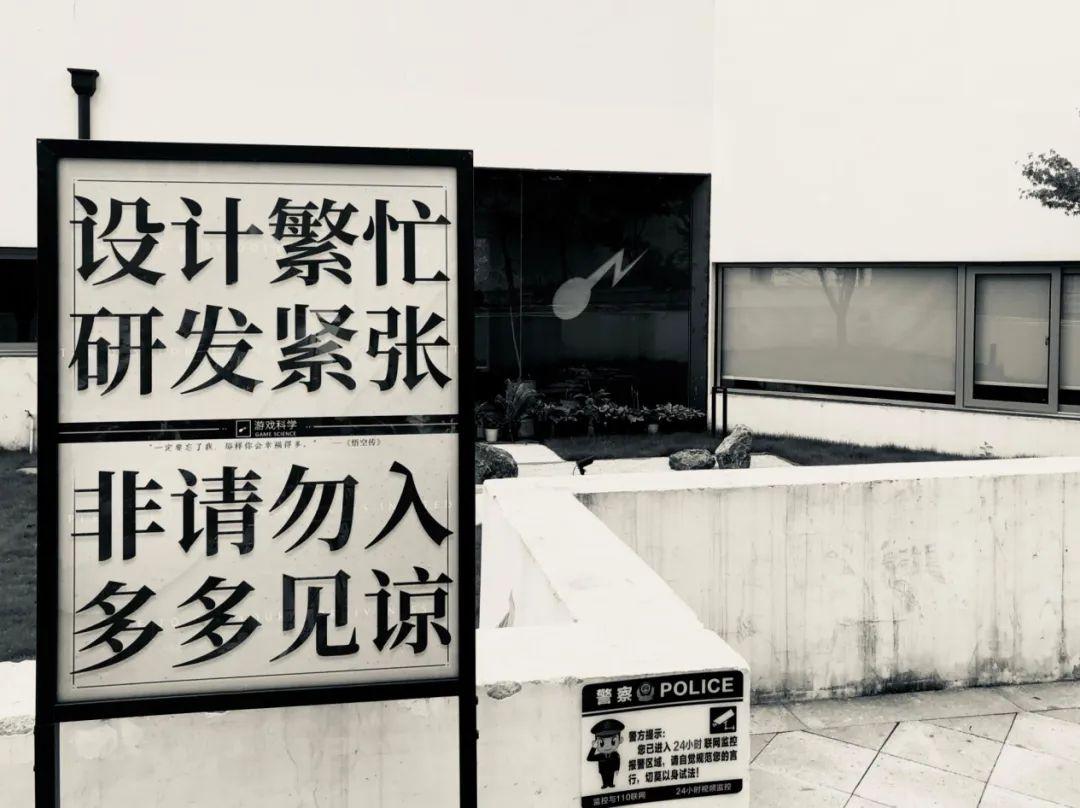"Investor Wu Dan: Why I Dare to Invest 160 Million Yuan in 'Black Myth: Wukong' First?"
![]() 09/06 2024
09/06 2024
![]() 578
578
"Black Myth: Irreplaceable"
Author | Wei Qiang
Editor | Lu Xucheng
He is Daniel (Wu Dan), the first investor in 'Black Myth: Wukong'. Renowned as the strongest investor in China's gaming industry over the past five years. In 2017, he represented Heroic Games to invest 60 million yuan in Game Science, acquiring a 20% stake. Heroic Games subsequently invested an additional 100 million yuan in 'Black Myth: Wukong', becoming its sole co-producer.
Daniel is an early investor at ZhenFund. When he first joined, he liked to wear shorts and slippers to work, obsessively playing games every day. Xu Xiaoping, the founder of ZhenFund, redirected him towards gaming investments, hoping he would become China's best gaming investor. After one and a half years, Daniel invested in 'Super Hero', 'Gunz Dash', and 'Vainglory', which once accounted for 70% of successful mobile game startups in the market, making him the youngest vice president in ZhenFund's history. Later, he co-founded Heroic Entertainment with Ying Shuling, now managing a team of over 2,000 people.

(Source: ZhenFund Article)
So how did he invest in 'Black Myth: Wukong'? The following content is compiled based on ZhenFund's interview with him, with some omissions.
Genius and Versatility
Yocar (Feng Ji, founder of Game Science) left Tencent's 'Dou Shen Zhan Shen' with his former colleagues. Looking back now, many people praise the Black Myth team for their work on 'Dou Shen Zhan Shen'. But if you understand the gaming industry, 'Dou Shen Zhan Shen' was a project that spent a lot of money but did not yield sufficient commercial returns. Back then, the only metric people used to evaluate a gaming team was whether they could make money and had strong commercialization capabilities. (Feng Ji) certainly faced many question . At the same time, their content creation abilities and production experience impressed many. They were a team that some people would definitely admire, but others might dismiss.
Many people might think this team lacks commercialization abilities and is too idealistic. But ultimately, their success didn't rely on commercialization; to some extent, it relied on idealism. Or, as the founder puts it, pragmatic idealism.

(Source: Game Screenshot)
The first time I met Yocar was in Shenzhen. Yocar told me about the team's history and their approach to 'Art of War: Red Tide'. His conversation style was very strategic; you wouldn't think he was a game developer. He always starts by making analogies, for example, by discussing how 'The Wandering Earth' proves something and what kind of market China theoretically should have. He speaks from a macro to micro perspective.
At the time, I talked to Yocar, and it was so rare to find such talent. Firstly, I was already working on Heroic Games, so I had a deep understanding of 'industrialization capabilities,' which refer to how to effectively coordinate many people on a project, arrange workflows, and achieve high production efficiency.
Based on a superficial judgment at the time, I assumed that industrialization capabilities would become increasingly important for games going forward. These capabilities are built on project experience. Without experiencing projects with hundreds of people, one cannot acquire such industrialization experience. This is complex and involves understanding pipelines, tools, and more. Very few teams in China have experience with such large projects. Tencent's 'Dou Shen Zhan Shen' and 'Blade & Soul,' NetEase's 'Justice,' and a few other large MMO projects are the only examples.
Secondly, he is a versatile talent. Game developers come from various backgrounds, including technology, art, planning, and operations, and to some extent, they all have weaknesses. But Yocar truly understands everything. He has strong aesthetics, understands planning, and knows technology...
He is also highly knowledgeable. Talking to him feels like talking to a biologist. Theoretically, he could have pursued a Ph.D. in biology. But at the same time, he is humanistic and can discuss mathematics, philosophy, and creative expression with you.
Another interesting detail from our conversation: The trailers for 'Dou Shen Zhan Shen' and 'Hundred Generals' were of very high quality, akin to movies. I asked him why these trailers were so well-made. He said, 'Do you know what I did in college? I watched hundreds of advertisements every day in my dormitory.'
If you look at his WeChat Moments, every few days he recommends an animation, a movie, or a book. He is always immersed in various content works. He always describes his recommendations with rhyming doggerel. If one day his posts suddenly lose their rhyme, there will be a flurry of questions asking why they're not rhyming today.
I don't know how these things will ultimately translate, but I was immediately drawn to him in that moment. After our conversation, I resolutely signed the contract and arranged for the payment the next second. Heroic Games wasn't very well-known at the time, just a startup. We had to be fast, decisive, and sincere to achieve what I wanted.
Transformation During a Period of Uncertainty
In fact, Heroic Games initially invested in Game Science for 'Art of War: Red Tide.' Before the team officially started working on 'Black Myth: Wukong' in 2018, they had developed three products: from 'Dou Shen Zhan Shen' to 'Hundred Generals' to 'Art of War: Red Tide,' one product every three to four years.

(Source: Game Screenshot)
After Red Tide, the team was in a relatively uncertain state. At that time, there wasn't much money left in their accounts. We met at the Xianggan Farm in Shenzhen. I asked him, 'What's next?'
Yocar shared his thoughts, his perspective on the single-player market, and his views on this opportunity. What impressed me the most was his ability to reflect inward and seek internal causes in the face of difficulties or failures.
He said, 'First, we need to understand ourselves. We don't have enough passion and experience with purely commercial games, so we can't make them. We have our own aesthetics and gameplay principles; we should make products that move us more.'
At the time, my judgments were mainly based on a few points: ① Assuming a single-player market exists and presents a significant opportunity. ② Assuming that telling Chinese stories brings significant era dividends. ③ Assuming the team can truly tell Chinese stories well and has the capability to produce AAA-quality games. Among these, ① and ② have already been validated by the film industry. ③ is what I valued the most.
After Red Tide, there were still dissenting voices within Heroic Games about the team. At least the majority of the team involved in the Red Tide project left Heroic Games. To some extent, investing in such a high-level project also competed for resources with the company's internal project teams.
I deeply believe that this team truly has the ability to tell Chinese stories well and produce AAA games. I remember Yocar's exact words: 'One must tie their career to the rise of the nation to gain the greatest momentum. This is the most basic sentiment and rationale.' Telling Chinese stories is a significant theme. Many people are insincere, but he is genuine.
Timing is Crucial
Our initial investment considerations were influenced by the popularity of 'Wolf Warrior' and 'The Wandering Earth.' We judged that if a game broke through technical and quality ceilings, national pride would undoubtedly lead to significant commercial success.
Journey to the West is a Chinese story. This team, having worked on 'Dou Shen Zhan Shen,' is essentially a group of Journey to the West scholars. This term was also taught to me by the team. Creating an IP involves the most time in world-building and monster design. For example, if I draw a monster today, what does it look like? It requires extensive research. So theoretically, the more they work on a consistent style of game, the smoother it becomes.
At that time, the most sold single-player game in the Chinese market had sold around 100,000 copies. We estimated that 'Black Myth: Wukong' would sell 10 million copies (it actually sold 10 million copies across all platforms within three days of its launch). From an investor's perspective, selling 100,000 copies doesn't matter; it just means the market doesn't exist. Selling one to two million copies puts you in an awkward position where the revenue isn't enough for the next game, and the performance isn't strong enough to raise funds for the next one. This is the most uncomfortable scenario.
From there, it was a process of trial and error, enduring hardships, and exploring uncharted territories. What's most difficult for a founder isn't necessarily their R&D capabilities; it's their mental fortitude.
After the first trailer was released (on Bilibili), it received over 50 million views, and many people started approaching them. He told me, 'Daniel, please block everyone for me. We need to shield ourselves from all external distractions right now.'

Game Science's Hangzhou Studio (Source: ZhenFund Article)
At the time, they specifically moved from Shenzhen to Hangzhou. Why? Because they judged that the team's mental fortitude was crucial. In Shenzhen, someone might come and poach you at any moment. Hangzhou is a quiet, suitable city. Secluding themselves in the mountains of Hangzhou was actually very difficult. Once, when I visited him in Hangzhou, he told me that one tank of gas could last him three months.
They always have a saying internally: completion is more important than excellence. This is also something Yocar constantly emphasizes to me every time I visit them.
When making a game, you must constantly make subtractions and maintain a sense of project boundaries. Often, projects can drag on for a decade or spend endless budgets. From a professional gaming perspective today, this game may still have many issues, and players may have many criticisms. But we're clear that completion itself is a breakthrough.
'Black Myth: Wukong' has seven partners in its organizational structure. All interviews mention how these seven partners have endured hardships together for so many years without breaking apart. The sheer volume of content is the result of their collective efforts.
He even 'leveraged' all of Heroic Games' capabilities. Before the launch, Heroic Games' entire publishing team, numbering in the dozens, voluntarily moved to Hangzhou to support the launch. It's hard to get someone to stay in another city for one or two months, but 'Black Myth: Wukong' had the unity to make you feel like you're fighting for an ideal, a part of something inspiring.
After completing 'Black Myth: Wukong,' players will see a long list of names in the credits. Many of these names belong to people from Heroic Games who helped him during 'Art of War: Red Tide.' Some of these people didn't contribute directly to 'Black Myth: Wukong's' launch, but it's part of his mental fortitude and warmth.
Black Myth: Irreplaceable
The gaming industry isn't rocket science; you can make something over many years, but the challenge is whether you have the courage and patience to do it.
The investment success of 'Black Myth: Wukong' is irreplaceable, and the core team is also difficult to replicate. This team can do it; others can't. The gaming industry heavily relies on talent, similar to how the film industry relies on directors.
Based on my personal judgment, younger developers today find it difficult to make such single-player games.
Why?
Games like Black Myth demand a high level of humanistic precipitate from the creators. Older developers have experienced more changes in the times, more life experiences, and thus more precipitate . Younger generations have grown up in relatively smooth and happy environments and may struggle to create games with such depth. In another decade, the younger generation inspired by 'Black Myth: Wukong' might be just 15 or 16 years old, saying they want to make something like this. That's a possibility. The next era of gaming investment opportunities will only become clear in two or three years. For now, I'm not investing in anything.








